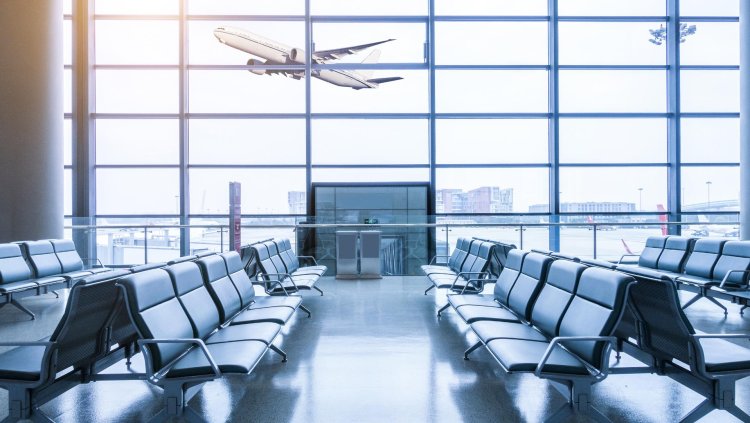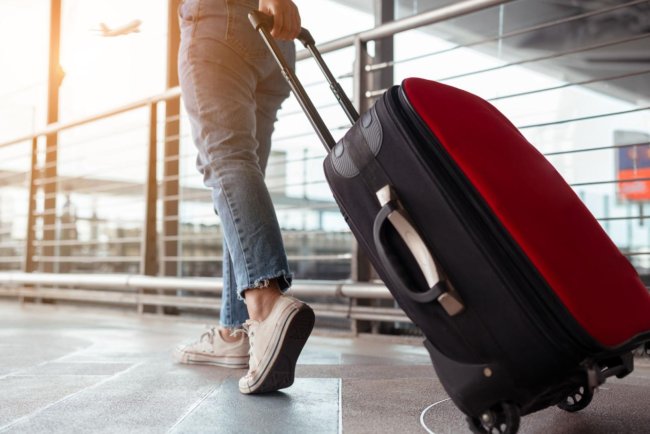Wildfires pose a significant threat to safety and health, particularly if you're on vacation in affected areas. Understanding how to protect yourself and your loved ones is crucial if you find yourself amidst wildfire smoke or flames. This comprehensive guide will provide practical advice and safety measures to follow if you're on vacation with wildfire smoke or flames nearby.
Understanding the Risks of Wildfires
Wildfires are uncontrolled fires that spread rapidly through vegetation and can be triggered by natural causes or human activity. When wildfires occur, they can produce smoke that spreads over large areas, impacting air quality and posing health risks. In extreme cases, the fire itself can pose a direct threat to your safety.
Key Risks:
- Health Hazards: Wildfire smoke contains harmful particles and gases that can affect respiratory health, exacerbate pre-existing conditions, and even cause long-term health issues.
- Safety Concerns: Proximity to flames increases the risk of injury or loss of life. Fires can spread quickly and unpredictably, making evacuation essential.
- Environmental Impact: Wildfires can damage ecosystems, wildlife habitats, and infrastructure, potentially affecting your vacation plans and the local environment.
1. Stay Informed
Check Local Alerts: Regularly monitor local news and weather reports for updates on wildfire activity. Utilize apps or websites that provide real-time information on air quality and wildfire status.
Emergency Alerts: Sign up for emergency alerts and notifications from local authorities. This ensures you receive timely information and instructions regarding evacuations and safety measures.
Local Resources: Familiarize yourself with local resources, such as fire departments, emergency services, and evacuation routes. Knowing where to seek help and how to navigate safely is essential in case of an emergency.
2. Protect Your Health
Avoid Exposure: If air quality is poor due to wildfire smoke, limit outdoor activities, especially strenuous exercises. Smoke can aggravate respiratory conditions, so avoid exposure whenever possible.
Indoor Air Quality: Keep windows and doors closed to prevent smoke from entering your accommodation. Use air purifiers with HEPA filters to improve indoor air quality. Avoid using ventilation systems that may draw in outdoor air.
Hydrate and Rest: Drink plenty of water and ensure you get adequate rest. Staying hydrated helps your body cope with the effects of smoke, while sufficient rest supports overall health and well-being.
Health Precautions: If you experience symptoms such as coughing, throat irritation, or shortness of breath, seek medical attention promptly. Those with pre-existing respiratory conditions should follow their prescribed treatments and consult healthcare providers for additional guidance.
3. Plan for Evacuation
Know Your Route: Identify evacuation routes and have a plan for how you will leave the area if necessary. Ensure your vehicle is in good condition and has a full tank of gas.
Emergency Kit: Pack an emergency kit with essential items such as water, non-perishable food, medications, important documents, and a flashlight. Include masks to protect against smoke inhalation and a first aid kit.
Travel Insurance: Consider purchasing travel insurance that covers evacuation and trip interruption due to natural disasters. This can provide financial support and assistance if you need to alter your travel plans.
Follow Instructions: Adhere to evacuation orders and follow the instructions provided by local authorities. Do not attempt to wait out the fire or smoke if advised to leave.
4. Communicate and Stay Connected
Inform Others: Let family and friends know your whereabouts and plans. Keep them updated on any changes in your situation or if you need assistance.
Emergency Contacts: Have a list of emergency contacts, including local authorities, your accommodation provider, and any relevant support services.
Stay Updated: Continue to monitor news sources and official channels for updates on the wildfire situation. Be prepared to adjust your plans based on new information and guidance.
5. Consider Alternative Plans
Change Your Destination: If the wildfire situation is severe and ongoing, consider altering your travel plans. Choose alternative destinations that are not affected by wildfires.
Indoor Activities: If you must stay in an area affected by smoke, focus on indoor activities and attractions. Many destinations offer a range of indoor experiences, such as museums, galleries, and indoor sports facilities.
Local Support: Seek assistance from local tourism boards or visitor centers. They may offer guidance on safe activities and updated information on the wildfire situation.
6. Environmental Considerations
Respect Nature: Follow local guidelines and respect nature by avoiding areas affected by wildfires. Refrain from engaging in activities that could increase the risk of fire, such as campfires or barbeques.
Wildlife Safety: Be mindful of wildlife that may be displaced by the fire. Avoid approaching or disturbing animals, and follow any guidelines provided by local wildlife authorities.
Leave No Trace: Practice “Leave No Trace” principles to minimize your environmental impact. Ensure that you leave your campsite or accommodation as you found it, without leaving behind any waste or debris.
7. Post-Wildfire Safety
Inspect Your Accommodation: After a wildfire, inspect your accommodation for any damage or lingering smoke. Ensure it is safe to stay in and that air quality has improved before resuming your stay.
Health Monitoring: Continue to monitor your health and seek medical attention if you experience any lingering effects from smoke exposure.
Support Local Communities: Contribute to local recovery efforts if possible. Many communities affected by wildfires rely on support from visitors and residents to rebuild and recover.
8. Resources and Tools
Emergency Apps: Download emergency apps that provide alerts and information on wildfires and air quality. Apps such as AirNow and local emergency services apps can be valuable tools.
Local Websites: Check local government and fire department websites for the latest updates and resources related to wildfire safety.
Travel Guides: Consult travel guides and forums for advice on navigating wildfire-affected areas. Travelers who have experienced similar situations may offer valuable insights and recommendations.
Vacationing near wildfire smoke or flames can be challenging and potentially dangerous. By staying informed, protecting your health, planning for evacuation, communicating effectively, considering alternative plans, and respecting the environment, you can ensure a safer and more enjoyable experience. Prioritizing safety and following these guidelines will help you navigate the situation effectively and minimize the impact of wildfires on your vacation.
Remember, your safety and well-being are the most important considerations. Stay vigilant, follow local advice, and take proactive measures to protect yourself and your loved ones during your travels.
FAQs





















